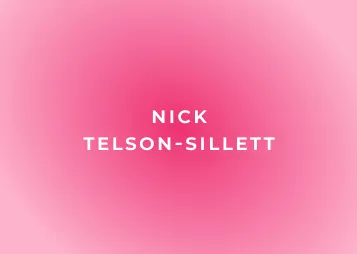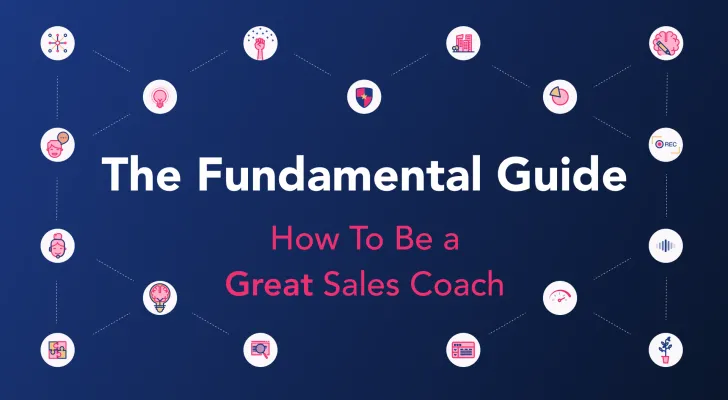Nick Telson-Sillett is a London-based entrepreneur, angel investor, and startup mentor, with a passion for marketing and building great tech products. He is the co-founder of trumpet, the digital sales room platform, host of the Pitch Deck podcast, and previously co-founded DesignMyNight, growing it to over 100 employees and 15,000 SaaS customers before its acquisition in 2019.
He joined Jiminny CEO, Tom Lavery, to discuss what makes a great tech product, how to keep up with Millennial and Gen Z buyers and what makes him pay attention in a demo.
What makes a great tech product?
“Number one you've obviously got to look at UI/UX, especially in sales and automation for salespeople, you have to make their job as quick and seamless as possible, without having to do too much and great UX/UI plays into that.
Salespeople are getting younger, and they’re expecting the product to look and feel like the products they use in their day-to-day, consumer life.
One of our mottos at trumpet is to be a B2B brand with B2C flare. Users need to love the product so we look at ‘moments of delight’. It's as simple as some animated confetti going off when someone completes a mutual action plan. MailChimp are one of the best at originally doing that, Trello have a unicorn that starts floating across the screen for no reason. It's these little things that bring a bit joy to the product.
Other than UX/UI, the other thing is speaking to the customers [to inform the product’s development]. At startups it's something that the founders don't do, they'll just hide behind their laptops. I think it's that balance of strategic thinking, “what does our customer want?”.
On the one hand you've got the Steve Jobs philosophy of “they don't know what they want until you give it to them” and if you do want to be truly innovative in your space you need to be thinking outside the box. Not just following competitors or building what a customer tells you to build. I probably look at it as 60% what the customer says and 40% bigger blue skies strategic-looking.”
How do you balance making a product customizable vs scalable as you grow?
"As you get bigger enterprise customers that bring in bigger chunks of ARR, you do have to satiate them. But I'm also a big believer that they have bought your product because it delivers. I think the minute you start to get bound in handcuffs by some big customers you can get into big problems.
At DesignMyNight, we had a very big pub chain that was paying us a decent chunk of money that just kept giving us requests that were very specific to their operations. In the end we just had to stand up ourselves and back our product. We knew they weren’t going to leave us because their team loved using our product and it worked very well. So we said ‘Look, we want to work with you so why don't you put in a doc a list of all the features you want and I promise you, I will do two in the next quarter. You prioritize those two for me”.
So it makes them think “Ok, what is most important to us?” and actually pushing it back onto the customer while standing up yourself and then delivering on it was quite a nice way to do it."
What trends or changes are you noticing in the world of sales from trumpet users?
"There's a stat I saw that said only 5% of deals are done when you’re with the buyer, so on a call or in person. But 95% of the deal is getting done when you're not even in the room and that's a huge shift in sales.
So that's what we focus on - we are that 95%. It's all about asynchronous collaboration - bringing the buyer into your world, without making it seem like you’re on top of them. You or your buyer can leave async video notes or voice notes, they can do a quick screen share - we call that meeting your buyer where they want to be met. A lot of buyers, millennials and now Gen Z buyers don't want to be on the phone, they don't want that meeting in their diary, they want async collaboration."
What makes you stop and pay attention in a product demo?
"Number one has to be personalization. AI can help with this now, reps need to show they've done their research into me, as the one buying.
I'm a bit more old school, I just want to see the demo. I think if you look at sales training courses, they're very big on the discovery, asking the right questions, keep drilling on the questions until you get those pain points. A big part of me is like ‘Just show me the damn product!”. I’ve been on sales calls where it's being booked in half an hour, we’re 20 minutes in and we're still in discovery and then it’s “oh let's jump on another call”. You've missed your slot really, it comes back into the async world of demoing - think about how you can just send a few demos that I can watch without the salesperson."
What do you think the trends or developments will be for B2B tech in the future?
"AI is the genuine game changer. Where I'm more excited about AI is in repetitive tasks. I'm still a big believer that humans want to buy from humans, so AI can help with processes, automations, workflows, discovery - all of the manual tasks. AI is a really exciting step change in making things happen quicker while keeping the personalization.
There's obviously other use cases like Customer Success where people don't always want to speak to a human they just want the answer. The other day on a product I went on their chatbot, I asked it quite a confusing question and it gave me the answer
Linked to that is the importance of predictive analytics. We're in a world now where we have so much data, whatever industry you're in there will be a ton of data flow. DesignMyNight was booking data, it was staff data and in sales products like Jiminny's conversation intelligence platform and then trumpet - all these other products have a ton of data. It's about consolidating that data and then using predictive AI to to give you what you need, that is going to be a big step change.
Something I hope happens with the help of tech is internal collaboration. We’ve got RevOps, we've got Buyer Enablement, Sales Enablement - all relatively new titles. Their job is to look across the whole stack - Marketing, Sales, Customer Support, Account Management. How can you bring all of these departments together? Because Marketing needs to help Sales and Sales need to enrich Marketing with their knowledge of the product, they’re selling to then hand off correctly to Customer Success. To enable all the information and have a beautiful smooth onboarding process, because you need management to reduce churn. It's all one chain and I think in this world where we just got so many tools for so many different departments I want to see how we can bring internal collaboration under one umbrella with one tool."
Watch the full interview here.





.webp)






